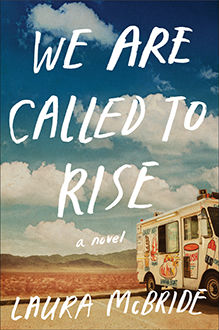I recently watched the winner of the Oscar for best documentary: OJ Simpson: Made in America. I’d been avoiding it, because all these years later, that case still thrums a line of rage through me. For me, someone who had worked at the New Haven Project for Battered Women for two years, and was the director of the Spokane Domestic Violence Shelter for one, OJ Simpson’s acquittal was simply proof that a man could kill his wife if he were rich enough to hire the right lawyers.
I remember a black friend telling me that her family had celebrated the OJ verdict. I’ll admit: I was astonished. And somehow, I hadn’t known. I didn’t have the courage to tell my friend I was surprised, because I knew how much pain was behind her family’s celebration; I knew that her case for injustice might be greater than mine.
And yet. The man killed his children’s mother.
The documentary places the OJ Simpson case in the context of a southern California where four police officers had been acquitted for beating Rodney King a few years earlier. And there’s a moment in the film in which a woman tells the story of fifteen-year-old Latasha Harlins, who was killed just weeks after King was beaten. Latasha was shot in the back of the head by a storeowner who believed, erroneously, that she was trying to steal a bottle of orange juice. The owner was convicted of voluntary manslaughter, and sentenced to . . . probation. And the woman in the documentary, the woman remembering that incident, says something like, “I couldn’t get over that. Hell, I’m not over it now.” And that was the moment of revelation for me. Of course she couldn’t get over it. It’s unbearable. A child died.
now.” And that was the moment of revelation for me. Of course she couldn’t get over it. It’s unbearable. A child died.
The thing is: the desire to be enlightened comes before the enlightenment itself. At 55, I still face my own misconceptions. I give myself credit: I believe they’re there. And I give myself no credit, because why the hell is it that hard?
I don’t have a grand wrap-up here. I haven’t said anything new. I just share that these moments of revelation come over and over. OJ Simpson killed his wife, and my rage that he was declared innocent was not misplaced. And those who celebrated that verdict responded from a place of deep hurt. I’m grateful for that woman who shared her feelings about Latasha Harlins’ death, and for a film that allowed me to see that moment in time through her eyes. I’m grateful to teach in a diverse community college that gives me similar opportunities, as I am grateful for all the books – novels and memoirs in particular – that have done the same. Peace Latasha. Peace to those who loved you.


Leave a Reply